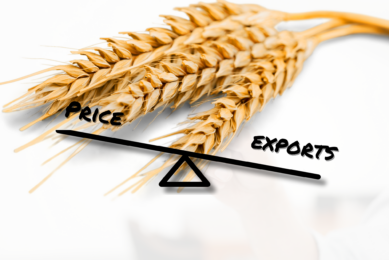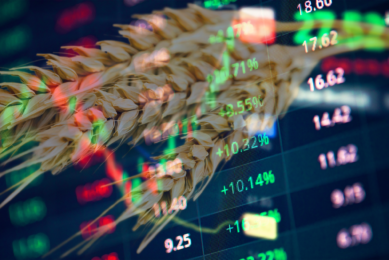Wheat price in Paris climbs above €250 per tonne

Wheat prices on international futures markets rose about 2% last week. The news mainly featured reports that support pricing for this cereal. In Paris, the December contract rose to above €250 per tonne.
In Canada, wheat production is lower than expected and the harvest ended earlier than normal. Which severely impacted 2 large railway organisations. Grain transport by rail in Canada is almost a third lower than a year ago. This has a major impact on the railway companies, which will therefore have to look for new sources of income this year.
Record wheat crop
Last Friday, September 24, the International Grains Council (IGC) lowered its global wheat harvest forecast by 1 million tons to 781 million tons from a month earlier. Despite the lowering of the harvest forecast, a record crop of wheat is still expected. Expected consumption, however, is rising more sharply. In the new estimate, the IGC assumes global wheat consumption of 783 million tons. As a result, stocks will decrease and that will support prices at the moment.
Higher export duties in Russia
Russia is also contributing. The export duties for wheat there will be increased again to $ 53.5 per ton (converted € 45.70 per ton) for the week from September 29. This hinders the export of Russian wheat. This is mainly reflected in the export to Egypt. Which has imported 1.39 million tons of wheat from Russia up until September 23, which is 35% less than last year.
Corn harvest higher
Corn also became more expensive in Paris last week. The prices in Chicago, on the other hand, did not rise further. This is mainly because the harvest expectation for maize is slightly higher than previously forecast. The IGC now expects a worldwide harvest of 1.209 million tons of maize, which is 7 million tons more than was forecast a month ago.
Forecast: Stabilisation to slightly lower prices.











